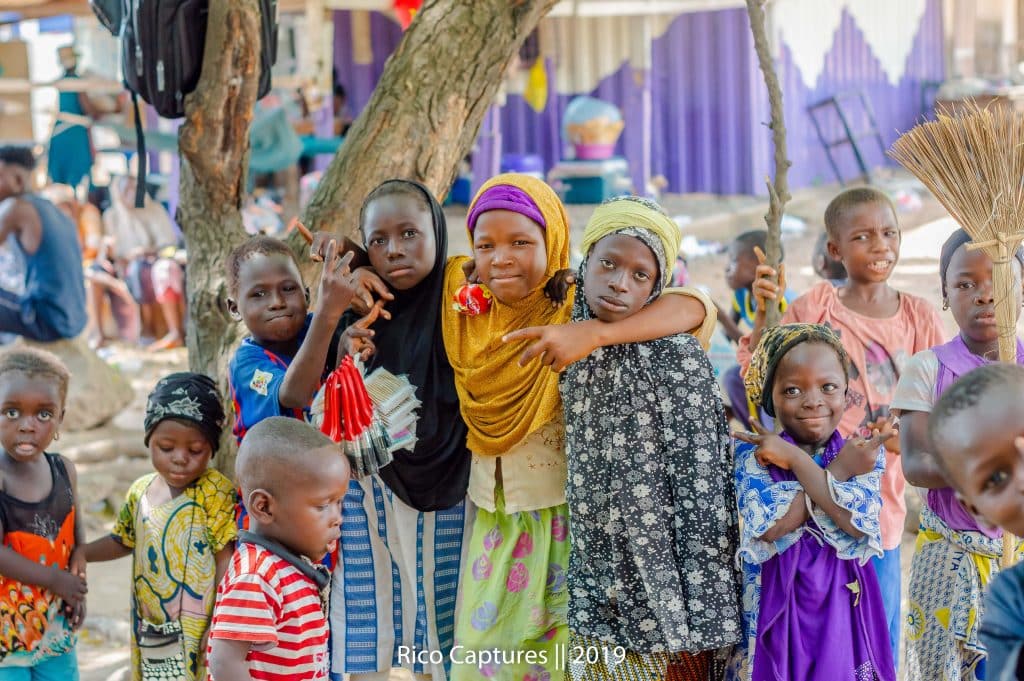Street girls, often referred to as girls living or working on the streets, are among the most vulnerable and marginalized groups in many societies. These girls face numerous challenges, including poverty, abuse, exploitation, and lack of access to education and basic services. However, there are various empowerment initiatives that seek to address these issues and provide these girls with a chance to break free from the cycle of street life and create a brighter future. This article will explore some of the key empowerment initiatives for street girls and highlight their importance in nurturing hope and creating opportunities.
1. Outreach Programs
Outreach programs play a crucial role in reaching out to street girls, building trust, and connecting them with essential services. These programs often involve street workers or outreach workers who engage with the girls, provide them with support and guidance, and offer access to basic necessities such as food, shelter, and healthcare. By establishing a relationship of trust, outreach programs lay the foundation for further empowerment efforts.
2. Shelter and Rehabilitation Centers
Providing safe and supportive shelters for street girls is a vital step in their empowerment. These shelters offer a secure environment where the girls can access clean accommodations, nutritious meals, and educational opportunities. Moreover, these centers provide counseling, life skills training, and vocational training programs to equip the girls with the necessary skills and knowledge to reintegrate into society and pursue sustainable livelihoods.
3. Education and Skill Development
Access to education is a fundamental right for all children, including street girls. Empowerment initiatives focus on removing barriers to education by providing scholarships, flexible learning programs, and vocational training opportunities. By equipping street girls with literacy, numeracy, and vocational skills, these initiatives enhance their chances of securing stable employment and improving their overall well-being.
4. Health and Well-being Support
Street girls often face significant health challenges due to the harsh living conditions they endure. Empowerment initiatives prioritize access to healthcare services, including physical and mental health support. Regular medical check-ups, counseling, and awareness programs on reproductive health and hygiene play a vital role in addressing the unique health needs of street girls and ensuring their overall well-being.
5. Financial Literacy and Entrepreneurship
Empowerment initiatives recognize the importance of financial literacy and entrepreneurship in enabling street girls to become self-reliant and economically independent. By providing training in financial management, budgeting, and entrepreneurship skills, these initiatives empower the girls to start small businesses, save money, and plan for their future. Entrepreneurship programs also encourage creativity, innovation, and problem-solving abilities, fostering a sense of agency and confidence among street girls.
6. Advocacy and Legal Support
Empowerment initiatives work towards advocating for the rights of street girls and creating an enabling environment that supports their well-being. They engage in awareness campaigns to challenge societal prejudices and stereotypes associated with street girls, aiming to change public perception and promote inclusivity. Legal support services ensure that the rights of street girls are protected, and they have access to justice in cases of abuse, exploitation, or discrimination.
7. Mentorship and Role Models
Having positive role models and mentors can significantly impact the lives of street girls. Empowerment initiatives establish mentorship programs where successful individuals from various fields act as mentors, providing guidance, support, and inspiration to street girls. These mentors help build confidence, set goals, and offer practical advice on career paths and personal development.
8. Social Integration and Community Support
Empowerment initiatives recognize the importance of social integration and community support in the successful reintegration of street girls into society. They collaborate with local communities, families, and businesses to create opportunities for these girls to be accepted, valued, and included. Awareness campaigns and community engagement programs aim to break the stigma associated with street girls and promote empathy and understanding.
9. Building Resilience and Self-esteem
Empowerment initiatives focus on building resilience and self-esteem among street girls. Through counseling, therapy, and support groups, these initiatives help the girls heal from their past traumas and develop a positive self-image. By instilling a sense of self-worth and resilience, they empower the girls to overcome challenges, make positive choices, and believe in their potential.
10. Long-term Follow-up and Aftercare
Sustainable empowerment requires long-term follow-up and aftercare support. Empowerment initiatives ensure that street girls receive ongoing support even after leaving shelters or completing programs. This support may include periodic check-ins, counseling, access to educational scholarships, job placements, or referral services to other support networks.
In conclusion, empowerment initiatives for street girls are essential in addressing the unique challenges they face and providing them with opportunities for a brighter future. By focusing on outreach, education, health, financial literacy, mentorship, social integration, and building resilience, these initiatives nurture hope, create opportunities, and pave the way for the empowerment and successful reintegration of street girls into society. It is through collective efforts, community support, and a commitment to social justice that we can uplift and empower these girls, enabling them to thrive and realize their full potential.
WHAT’S OUT THERE: International Women’s Day – working with and for street girls








